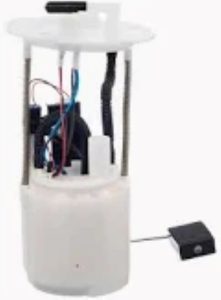Calibration of the fuel pump to correctly deliver fuel for maximum engine efficiency and mileage. Calibration changes the flow rate of the fuel pump, making sure it dispenses only as much fuel as required in various situations while running. Standard engines typically need 40 to 60 psi, where as high-performance engine may require up to 70 psi. Fuel delivery can also be affected by this when there is no calibration and it may run too rich or lean, meaning the engine will not get designed amount of fuel for which its efficiency will decrease but on top that you won't even notice any misfiring in power strokes momentary stalling due to less than required quantity of combustion (also idle air control), This ultimately leads us have a good laugh.
Proper calibration will also avoid having the fuel pump and the fuel injectors experiencing early wear on their engines, as well. Injectors can clog or be overworked (thus shortening their lifespan by up to 20%) when a fuel pump provides fuel at incorrect pressures and inconsistent flow rates. In industries where precision level is critical like automotive racing, few psi difference can reduce the performance to a great extent which reveals how vital it is for such high power output vehicle applications need accurate pump adjustments.

Many contemporary cars and trucks with advanced electronic control units (ECUs) have evolved a more sophisticated way to rule the fuel pump, saving wear on parts by running slower when less gas flow is required. Fuel pumps include calibration recommendations from Bosch and Delphi experts to be recalibrated every 30,000-50,000 miles for the very best power performance (with high-mileage or aggressive applications). Failure to calibrate properly could lead a jet of fuel particles too large for convection into the cylinder, making it impossible get complete combustion, which in turn increases emissions. According to the U.S. Environmental Protection Agency (EPA), poor fuel atomization can add as much 15% in tailpipe emissions--underscoring how better calibration of fuels is a step for cleaner air quality.
Calibration of fuel also relates with the accuracy of fuel gauge reading. Improper pump calibration will also provide incorrect tank readings, causing drivers to possibly run out of fuel unexpectedly or frequent refueling. A functioning Fuel Pump that's properly calibrated, keeps the whole fuel system running dependably; keeping up engine efficiency and emissions down.